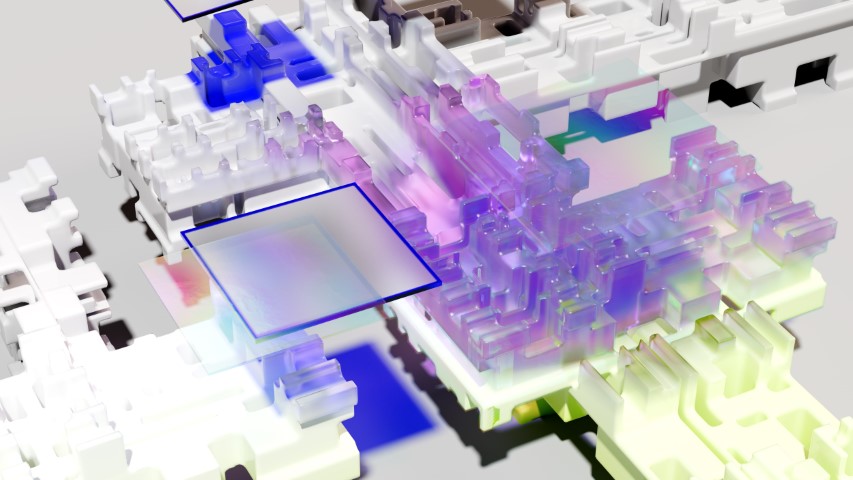- Beyond Meat, COO arrested for biting man’s nose near Razorback Stadium.
- The incident: what happened?
- Beyond Meat’s ( Tysons) response
- What’s next?
- What this means for Beyond Meat
- What does this mean for Beyond Meat?
- What is Beyond Meat?
- How eating meat hurts the world
- The impact of meat consumption on greenhouse gas emissions
- Water use and pollution caused by livestock
- Land use and deforestation due to livestock farming
- Is a plant-based diet the answer?
- Conclusion
Beyond Meat, COO arrested for biting man’s nose near Razorback Stadium.
A Beyond Meat executive, Doug Ramsey, was arrested early Saturday morning after biting a man’s nose near Razorback Stadium, police said.
Doug Ramsey, 53, of Fayetteville, Arkansas, was detained on September 17 on accusations of terroristic threatening and third-degree battery. According to a preliminary investigation, the incident occurred in a parking garage near Razorback Stadium following Arkansas’s victory over Missouri State.
Officers separated the two men and spoke with witnesses, who said Ramsey had been “talking trash” to people in the area before the fight started. We know that this isn’t the normal thing that will appear on our tech blog, but we thought it was funny ( well not funny that it happened just the fact a guy who used to work for a plant based food producers tries to eat someone’s face)
The incident: what happened?
The police officer spoke with both parties, a witness and Ramsey himself, and found that Ramsey was allegedly traveling in the traffic lane of the structure, attempting to leave, when a Subaru nudged its way in front of Ramsey’s Corvette, making contact with the front passenger’s side tire. According to the officer, Ramsey got out of the window of his vehicle and allegedly punched through the back windshield of the Subaru.
Beyond Meat’s ( Tysons) response
According to Tyson Foods’s website, Ramsey became vital to the company’s Tyson Foods poultry cutting edge in 1992. He was gradually inducted as president of its global McDonald’s department in 2019. The page also explains that a champion backs Ramsey for team members’ security. A Tyson spokesperson confirmed that Ramsey ultimately left the company of his own accord and not because of his recent conviction.
What’s next?
He has a court date set for October 19 in Fayetteville District Court.
What this means for Beyond Meat
Nothing really, nothing at all. A guy who used to hold a high-up position bit someone in the face. Stuff like this happens all the time, but it is just comical that the food of the future to save our environment by avoiding the downfalls of meat production and consumption bit someone’s nose.
What is Beyond the Meat?
What is Beyond the Meat?
We all know that Meat is delicious. But what is beyond the Meat? What does it mean for our health, environment, and animals with which we share this planet?
What does this mean for Beyond Meat?
The original article is titled Beyond Meat COO arrested for biting man’s nose near Razorback Stadium. According to the report, Beyond Meat’s COO was arrested for biting a man’s nose during an altercation near the Razorback Stadium in Arkansas.
So what does this mean for Beyond Meat? First, it’s important to note that this incident occurred outside the company’s everyday operations. Secondly, while Beyond Meat has not yet commented on the incident, it’s safe to say that they do not condone violence of any kind.
What is Beyond Meat?
Beyond Meat is a company that produces plant-based meat products.
The plant-based meat company Beyond Meat is expanding its product line. The company announced it would soon sell plant-based milk, eggs, and cheese. Beyond Meat’s products are made from pea protein, a sustainable and environmentally friendly source of protein. The company’s vegan products are free of soy, gluten, and GMOs. Beyond Meat’s products are available in over 35,000 the United States and Canada stores.

How eating meat hurts the world
The world’s population is forecast to reach 9.7 billion by 2050, and the increased demand for food comes with more people. The United Nations’ Food and Agriculture Organization estimates that meat consumption will rise to 455 million tonnes by 2030, from 218 million tonnes in 1997-1999. The main drivers of this growth are increasing incomes and urbanization, which lead to changes in dietary habits. As a result, animal agriculture is one of the leading causes of environmental degradation.
The livestock sector significantly contributes to climate change, accounting for 14.5 percent of global greenhouse gas emissions annually. It also uses large amounts of water, land, and energy. It is one of the biggest consumers of freshwater resources, accounting for 20 percent of all freshwater withdrawn from rivers and aquifers each year.
The impact of meat consumption on greenhouse gas emissions
The impact of meat consumption on greenhouse gas emissions is staggering. The average person in the United States consumes over 200 pounds of meat yearly. Raising and processing livestock is responsible for nearly 15 percent of all human-caused greenhouse gas emissions.
The impact of meat consumption on the environment goes beyond just greenhouse gas emissions. Raising livestock requires large amounts of land, water, and food, which puts a strain on our natural resources. Animal waste also pollutes our air and water and contributes to climate change.
So what can we do to reduce the impact of our meat consumption on the environment? One obvious solution is to eat less meat.
Water use and pollution caused by livestock
The water used and polluted by livestock is a growing environmental concern.
According to the United Nations Food and Agriculture Organization, producing just one pound of beef takes 2,500 gallons of water. That same amount of water can be used to grow nearly 1,400 pounds of vegetables.
Livestock also pollutes our water, and their manure can contaminate groundwater and surface water with harmful bacteria, viruses, and parasites. The waste can also contain nutrients that lead to algal blooms in waterways, which deplete oxygen levels and create dead zones.
These environmental concerns have led some people to advocate for reducing or eliminating meat consumption. While that may be difficult for many people, even small reductions in meat consumption can significantly impact the environment.
Land use and deforestation due to livestock farming
Livestock farming is one of the leading causes of land use and deforestation, and it is responsible for 80% of the Amazon rainforest’s deforestation. In addition to the loss of trees, livestock farming contributes to soil erosion and water pollution.
The demand for meat is increasing as the world’s population grows. This means that more land is being used for livestock farming. As a result, less land is available for other uses, such as agriculture or forestry. This can harm the environment and local communities.
Some things can be done to reduce the impact of livestock farming on the environment. For example, farmers can use more efficient production methods, such as rotational grazing, which can help reduce the amount of land needed for livestock farming.
Is a plant-based diet the answer?
A plant-based diet has been gaining popularity in recent years as more people seek to lead a healthier lifestyle. But what about the environmental impact of a plant-based diet?
A new study published in the journal Nature suggests that a global shift to a plant-based diet could significantly reduce greenhouse gas emissions. The study found that avoiding meat and dairy products could reduce agricultural greenhouse gas emissions by up to 73%.
If everyone in the world were to adopt a plant-based diet, it would significantly impact the environment. So, switching to a plant-based diet may be the answer if you want to do your part for the planet.
Conclusion
To be totally honest we just found this funny article that had the info about the nose biting incident and wanted to post it. We all know that meat will hurt the world if we continue to consume it at the rate that some of us have grown accustomed to, which isn’t good at all. Beyond Meat has a couple of different ways of trying to fix this issue as we outlined above, which could really help the world.
But for now we just hope that this guy gets his issues resolved because as much as we want to avoid eating meat to save the world cannibalization isn’t something that we can really get behind. We will do a couple of write ups on the tech that uses led to maximize food growth shortly as it is really interesting but for now we will just leave you with this message, we need to eat less meat, and getting closer to being zombies isn’t the answer.
And for total clarity, we weren’t there, we didn’t see it happen, we just read a report online that reported it and thought it was funny in a sad way.













